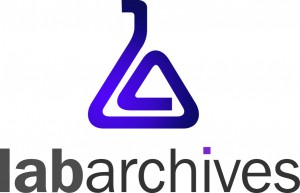There’s just under two weeks left to put your nominations in for BioMed Central’s 7th Annual Research Awards, including the Open Data Award. This award recognizes researchers who have published in BioMed Central journals and have demonstrated leadership in the sharing, standardization, publication, or re-use of biomedical research data during 2012. Nominations close on January 31st 2013. The award will be judged by prominent figures in open data and open science: John Wilbanks; Peter Murray-Rust; Earl Beutler; Rufus Pollock and Cameron Neylon.
Open Data Award. This award recognizes researchers who have published in BioMed Central journals and have demonstrated leadership in the sharing, standardization, publication, or re-use of biomedical research data during 2012. Nominations close on January 31st 2013. The award will be judged by prominent figures in open data and open science: John Wilbanks; Peter Murray-Rust; Earl Beutler; Rufus Pollock and Cameron Neylon.
The award is sponsored by LabArchives, a leading Electronic Lab Notebook that is used by scientists throughout the world to store, organize, share, and publish their laboratory data. BioMed Central has partnered with LabArchives to work together for the shared goal of making datasets supporting peer-reviewed publications available, and permanently linked to publications.
 President and CEO of LabArchives Earl Beutler comments, “For the second consecutive year, LabArchives is pleased to be sponsoring this year’s Open Data Award. As an extension of our partnership with BioMed Central in which we make the LabArchives platform available to scientific authors as a unique venue for publishing supplemental data, we look forward to this year’s nominations and to awarding the prize to this year’s winner.”
President and CEO of LabArchives Earl Beutler comments, “For the second consecutive year, LabArchives is pleased to be sponsoring this year’s Open Data Award. As an extension of our partnership with BioMed Central in which we make the LabArchives platform available to scientific authors as a unique venue for publishing supplemental data, we look forward to this year’s nominations and to awarding the prize to this year’s winner.”
 Last year’s winner of the Open Data Award, Peter AG Sandercock, University of Edinburgh, for The International Stroke Trial database Trials 2011, 12:101 (21 April 2011) says, “I was delighted to win the Open Data Award. It sends a very positive signal to the clinical trials community that making full data sets publicly available is possible and brings benefits to the trialists. The IST data, which was posted online has already been used for two further projects. One is related to what happens to people who first become aware of their stroke symptoms when they wake from overnight sleep. This was analysis undertaken by a group of researchers in the USA. They presented the findings at a meeting of the American Stroke Association in 2012, and are now writing it up for a full publication. Two other groups, one in Nottingham and one in Edinburgh, have used the data to try and work out better ways of using blood thinning drugs in people within the first hours of onset of stroke symptoms. This demonstrates the value of even quite ‘old’ data to the scientific community – the IST study was published 15 years ago in 1997!.”
Last year’s winner of the Open Data Award, Peter AG Sandercock, University of Edinburgh, for The International Stroke Trial database Trials 2011, 12:101 (21 April 2011) says, “I was delighted to win the Open Data Award. It sends a very positive signal to the clinical trials community that making full data sets publicly available is possible and brings benefits to the trialists. The IST data, which was posted online has already been used for two further projects. One is related to what happens to people who first become aware of their stroke symptoms when they wake from overnight sleep. This was analysis undertaken by a group of researchers in the USA. They presented the findings at a meeting of the American Stroke Association in 2012, and are now writing it up for a full publication. Two other groups, one in Nottingham and one in Edinburgh, have used the data to try and work out better ways of using blood thinning drugs in people within the first hours of onset of stroke symptoms. This demonstrates the value of even quite ‘old’ data to the scientific community – the IST study was published 15 years ago in 1997!.”
For more information and to get voting please visit the website!
One Comment